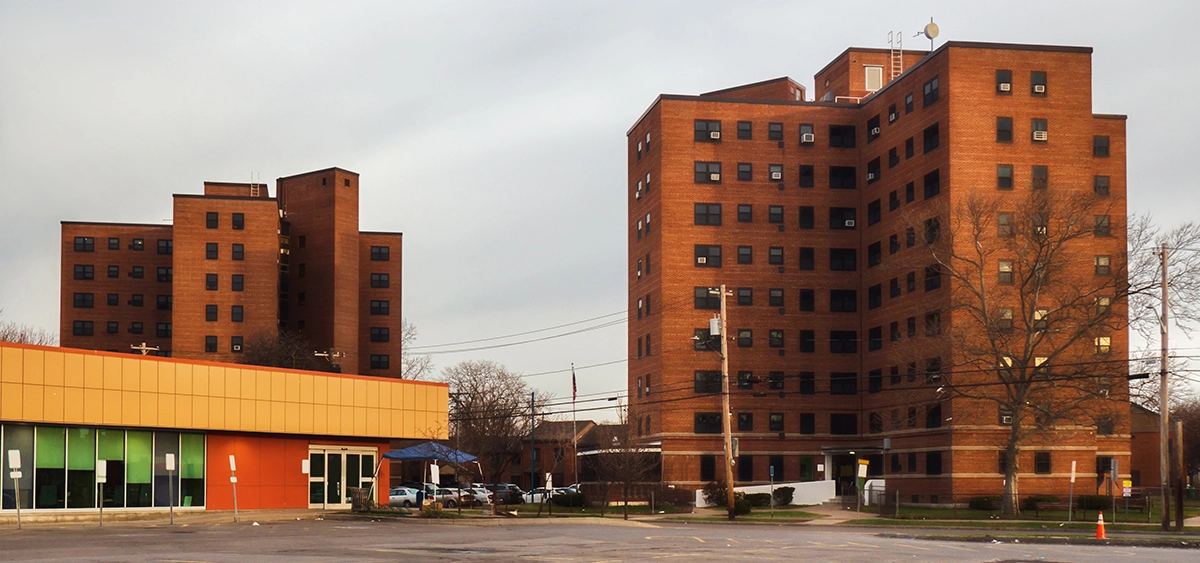Has an unstable financial situation made it impossible to for you and your family to afford a suitable home? Low rent housing might be the solution. Who is eligible for this kind of housing and how to you apply?

What is low rent housing?
It is housing or partially funded by a government agency called the Société d’habitation du Québec (SHQ) and administered by the Office municipal d’habitation in your area.
This type of housing (known in French as LLM or HLM) is offered to people or families whose financial situation prevents them from finding adequate housing.
Who is eligible for low rent housing?
- You must be at least 18 years old or be an “emanicipated minor” (person under 18 with the rights of an adult).
- You must be able to meet your basic needs (personal care, housekeeping etc.) either on your own or with help from an outside person.
- You must be a Canadian citizen or permanent resident, and currently living in Quebec.
- You have lived in Quebec or, in some cases, in the area served by your Office municipal d’habitation, for at least 12 months in the last two years.
- The gross monthly income of your household must not be more than the amount set by the government. Gross monthly income means before paying taxes.
You should know that the value of the things you own can also be taken into account. Each Office municipal d’habitation can make rules about the limits on the value of things owned by tenants. Use the search tool on this website to contact your local office for more information
For the city of Montreal, consult the Office municipal d’habitation de Montreal website.
How can I find out if I am eligible?
If you want to rent a low rent housing unit, you must send a written request to your local municipal housing office (Office municipal d’habitation). You will need to fill out an application form and provide all the requested documents like a copy of your current lease, a tax return, etc.
Within 30 days of receiving your application, the office must inform you of their decision to register you or not on (1) the register of applications to lease.
After you are registered on the waiting list, the office has 60 days to inform you whether it will its register you on the (2) list of eligible persons. In some situations, it might take more than 60 days.
As soon as a housing unit becomes free, the office will offer it to a person on the list of eligible persons, taking into account the priority of requests. For example, someone living in an apartment unfit for habitation will be granted higher priority than someone living in an apartment in good condition. Contact your local office to find about all the factors taken into consideration.
What if my application is refused?
If the office refuses to place you on the list of eligible people, you can apply to the Tribunal administratif du logement (TAL, formerly Régie du logement or rental board) to have the decision reviewed. You must apply within one month of the refusal.
The Office municipal d’habitation must show that it dealt with your application according to the rules. . If the TAL finds that your refusal was not justified, it can order that you be put on the list of eligible people.
What if I make a false statement?
If a housing unit was given to you after you made a false statement, for example, you didn’t indicate your spouse’s or partner’s income, the Office municipal d’habitation can, within two months of discovering the false statement, request the TAL to change or cancel your lease.
Can the rent be reduced during the lease?
Yes. If your income goes down or there are changes to your household during your lease, you can ask the Office municipal d’habitation to reduce your rent.
The Office must notify you of its decision within 30 days of the date that you filed your request.
If the Office municipal d’habitation refuses or does not answer your request to reduce the rent, you can ask the TAL for a rent reduction.
What are my rights if my rent is increased?
In the rent increase notice, the Office municipal d’habitation does not have to mention the new rent amount or the amount of the increase because these increases are decided based on what is in the law. If the rent increase respects the law, you cannot challenge it. Also, you don’t have to answer the notice.
If your rent does not respect the legal rules, you have two months from the time the rent is set to ask a court to change it.
Do I have to accept changes to my lease (other than the rent)?
No. If you get a notice about changes to the length of your lease, or any other part of the lease except the rent, you can, within one month of getting the notice ask a court to make a decision about the change. If you don’t ask a court to make a decision, it is as though you accept the changes.
The same is true for a notice ending the lease. As a tenant, you are entitled to stay in the dwelling. So if you get a notice ending the lease, you can challenge it. You can go to a court to challenge the notice. If you don’t challenge it, it as though you have accepted it.
Can I sublet or assign my lease?
No. A tenant in low rent housing cannot sublet or assign (transfer) a lease.
But can are allowed to cancel it at any time by sending a three-month notice to the Office municipal d’habitation.







